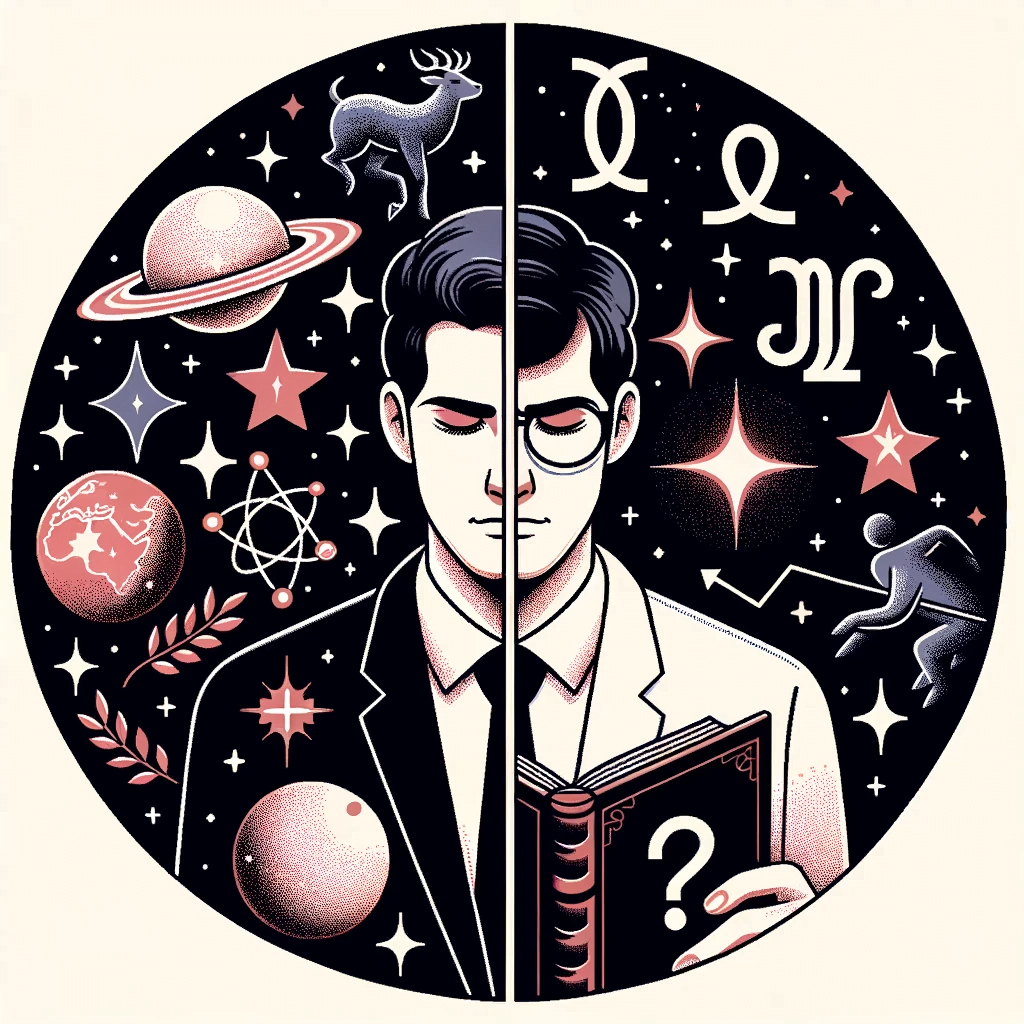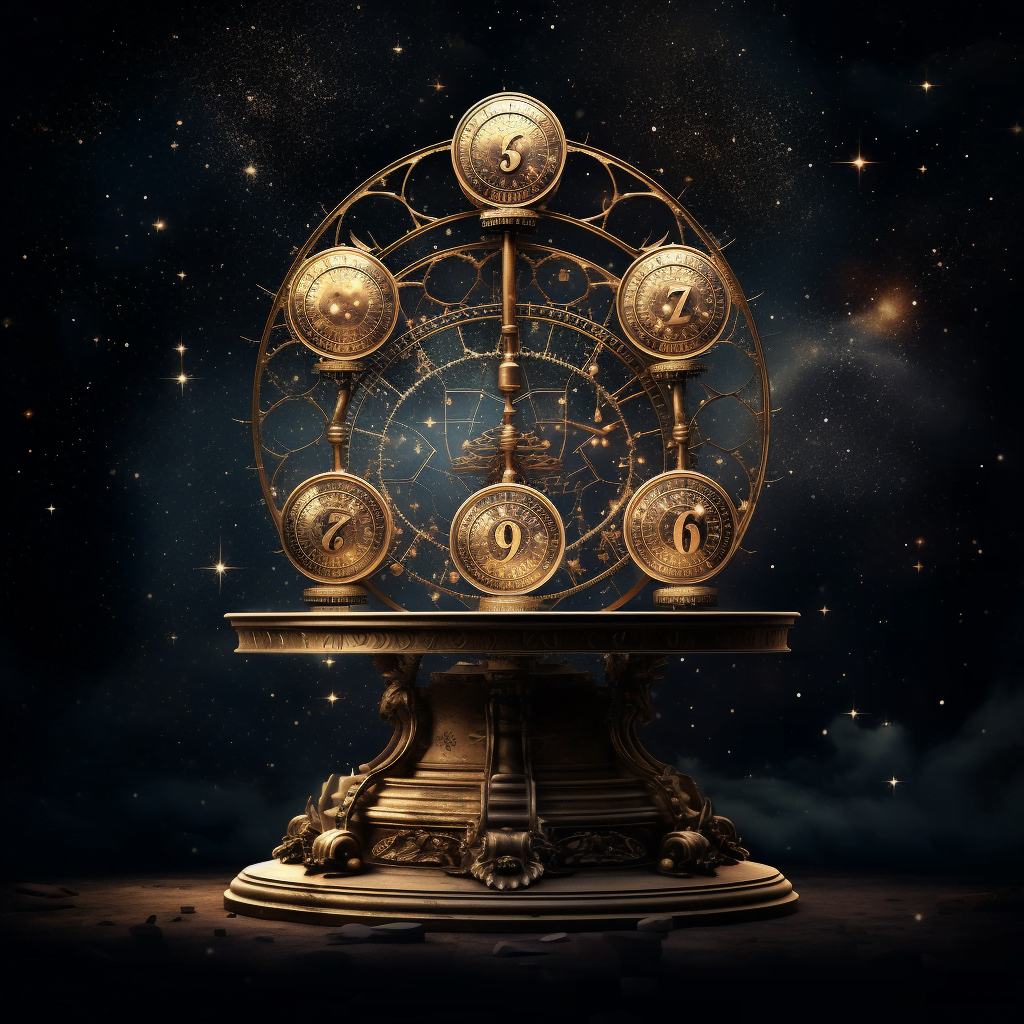In the realm of understanding the human mind and behavior, astrology and psychology can be viewed as two distinct disciplines that seemingly operate in separate domains. However, upon closer examination, an intriguing relationship emerges between these seemingly unrelated fields. Astrology, with its ancient roots and focus on celestial bodies, offers a unique lens through which individuals can gain insights into their personalities, motivations, and even potential life paths. Conversely, psychology, grounded in empirical research and scientific methodologies, delves into the complexities of human cognition and behavior. By exploring the connection between astrology and psychology, we can unravel the intriguing interplay between the cosmic forces that influence our lives and the internal workings of the human psyche.
Astrology and Psychology Explained
Astrology and psychology are two disciplines that have fascinated humans for centuries. Both aim to understand human behavior, delve into the depths of the human mind, and provide insights into the complexity of human nature. While astrology is often regarded as a pseudoscience, psychology is firmly grounded in empirical research and scientific methodology. In this article, we will explore the historical connection between astrology and psychology, examine how astrology can provide insights into personality and human behavior, discuss the criticisms of astrology from a psychological perspective, explore the potential of astrology as a psychological tool, and examine its relationship with counseling and therapy. Furthermore, we will explore the archetypal connection between astrology and Carl Jung’s analytical psychology, delve into the cognitive processes involved in astrology, and consider the future possibilities of integrating astrology and positive psychology.
Historical Connection
Early Roots
The historical connection between astrology and psychology can be traced back to ancient civilizations. In ancient Babylonia, astrology was deeply intertwined with religion and the belief that celestial bodies influenced human affairs. The Babylonians used astrology to predict the future and understand the personality traits of individuals based on their birth charts. Similarly, ancient Egyptians believed that the alignment of the stars at the time of birth influenced the character and destiny of individuals. These early concepts laid the groundwork for the development of astrology as a tool for understanding human behavior.
Ancient Beliefs
Astrology continued to evolve and gain prominence in ancient Greece and Rome. The Greeks associated astrology with their mythological gods and goddesses and believed that celestial bodies represented divine forces in the universe. The Roman philosopher Ptolemy further refined the astrological system and categorized personality traits based on the influence of different planets. Astrology became widely accepted and played a significant role in shaping individuals’ lives and societal decisions.
The Birth of Modern Psychology
The advent of modern psychology in the late 19th and early 20th centuries marked a significant shift in the understanding of human behavior. Psychologists such as Sigmund Freud, Carl Jung, and Alfred Adler explored the depths of the human mind, focusing on unconscious processes, personality development, and the role of symbols and archetypes. This shift in focus towards the inner workings of the human mind coincided with a decline in the popularity of astrology as a scientific discipline.
Astrology’s Influence on Psychology
Despite the decline in astrology’s popularity within the scientific community, its influence on psychology has persisted. Carl Jung, a prominent figure in analytical psychology, recognized astrology’s potential to provide insights into the human psyche. He considered astrology as a symbolic language that could reveal aspects of the unconscious mind and the collective unconscious. Jung believed that the archetypal symbols found in astrology could serve as powerful tools for self-reflection and personal growth.
Astrology and Personality
Personality Traits and Zodiac Signs
One of the primary connections between astrology and psychology lies in their shared interest in understanding personality. Astrology associates personality traits with zodiac signs, which are determined by an individual’s date of birth. Each zodiac sign is believed to possess distinct characteristics, such as Aries being bold and competitive, or Taurus being patient and practical. While psychologists approach personality assessment through scientifically validated tools and theories, astrology offers an alternative perspective based on the alignment of celestial bodies at the time of birth.
Psychological Archetypes and Astrological Elements
Psychological archetypes, as defined by Carl Jung, are universal symbols that resonate within the collective unconscious. Astrology, with its association of archetypal symbols such as the Sun, Moon, and planets, provides a rich source of archetypal meaning. The Sun symbolizes the ego and conscious identity, the Moon represents emotions and the unconscious, while each planet is associated with a distinct psychological function. The connection between psychological archetypes and astrological elements allows for a deeper understanding of the complexities of human behavior.
Psychological Interpretation of Birth Charts
Astrological birth charts are individual maps that depict the positions of celestial bodies at the time of an individual’s birth. While astrology interprets birth charts to predict future events, psychological interpretation focuses on understanding the individual’s unique personality and behavioral patterns. Psychologists who integrate astrology in their practice often view birth charts as tools for self-awareness and gaining insights into unconscious processes. By examining the planetary aspects and placements, psychologists can explore the strengths, challenges, and potential growth areas of an individual’s psychological makeup.
Astrology and Human Behavior
Astrological Transits and Personal Growth
Astrological transits refer to the movement of celestial bodies in relation to an individual’s birth chart. These transits are believed to trigger significant life events and psychological shifts. Psychologically, astrological transits can provide individuals with an opportunity for personal growth and self-reflection. By observing the patterns and themes associated with different transits, individuals can gain insight into the areas of their lives that may require attention and change. This process of self-reflection and growth is akin to the therapeutic journey offered by psychology.
Psychological Implications of Astrological Predictions
Astrology often makes predictions about personal and societal events based on the alignment of celestial bodies. While these predictions are approached with skepticism by the scientific community, they hold psychological implications for individuals. Astrological predictions can influence individuals’ thoughts, emotions, and behavior, especially when confirmation bias comes into play. Confirmation bias is the tendency to seek and interpret information in a way that confirms preexisting beliefs. Individuals may actively seek out events that align with astrological predictions, reinforcing their belief in astrology’s validity.
Astrology’s Effect on Decision-Making
Astrology’s influence on decision-making is multifaceted. Some individuals may use astrology as a guiding tool, seeking insights into the best times for making important life decisions. Others may feel constrained by the predictions and limitations implied by their birth charts. Psychological studies have shown that individuals may be more inclined to make decisions that align with their astrological profiles, as they believe it will lead to better outcomes. This inclination reflects the complex interplay between astrology, individual belief systems, and psychological decision-making biases.
Psychological Critiques of Astrology
Scientific Method vs. Astrology
Astrology, as a pseudoscience, has long been subject to scientific skepticism and critique. Critics argue that astrology lacks empirical evidence, rigorous testing, and the ability to make accurate predictions consistently. Astrology’s reliance on subjective interpretations and generalizations undermines its scientific credibility. While psychology embraces the scientific method and relies on empirical data to validate theories, astrology remains rooted in subjective interpretations of celestial events.
Confirmation Bias and Astrological Beliefs
Confirmation bias plays a significant role in individuals’ beliefs in astrology. Once individuals form beliefs in the validity of astrology, they tend to seek out information that confirms those beliefs while dismissing contradictory evidence. This bias reinforces and sustains their faith in astrology, contributing to the perpetuation of astrological beliefs. Psychology recognizes confirmation bias as a cognitive bias that shapes individuals’ perceptions and influences their decision-making processes.
Astrological Generalizations
Another criticism of astrology from a psychological perspective lies in its tendency to make sweeping generalizations about individuals based on their zodiac signs. By attributing fixed personality traits to individuals based solely on their date of birth, astrology oversimplifies the nuances and complexities of human behavior. Psychology emphasizes the uniqueness of every individual and recognizes that personality is shaped by a multitude of factors, including genetic, environmental, and cultural influences. Generalizations made by astrology may lead to stereotypes and misunderstandings about individuals.
Astrology as a Psychological Tool
Self-Reflection and Astrology
Astrology can serve as a powerful tool for self-reflection and self-exploration. By examining their birth chart, individuals can gain a deeper understanding of their personality traits, strengths, and weaknesses. Through self-reflection, individuals may be able to identify patterns and themes in their lives and explore how these relate to their psychological well-being. Astrology provides a unique lens through which individuals can gain insight into their inner world, enhancing their self-awareness and personal growth.
Therapeutic Applications of Astrology
In the field of therapy, some psychologists integrate astrology as a complementary tool to traditional therapeutic methods. Astrology can act as a catalyst for discussions, helping clients explore their emotions, thoughts, and behaviors in a symbolic and metaphorical manner. By incorporating astrological concepts into therapy sessions, therapists can foster deeper connections with clients and facilitate their journey of self-discovery. However, it is essential for therapists to approach astrology ethically and critically, recognizing its limitations and potential biases.
Astrology’s Role in Personal Development
Astrology’s role in personal development lies in its potential to stimulate self-empowerment and facilitate psychological growth. By tapping into the archetypal symbols and narratives of astrology, individuals can identify areas in their lives where personal development is needed. Astrology can inspire individuals to reflect on their purpose, values, and aspirations, guiding them towards a more fulfilling and meaningful life. As a psychological tool, astrology offers a unique perspective that can complement traditional methods of personal development.
Astrology in Counseling and Therapy
Astrological Counseling Techniques
Astrological counseling techniques utilize astrology as a framework for exploring clients’ psychological well-being. These techniques often involve the interpretation of birth charts, which act as a guide for understanding clients’ personalities, motivations, and life circumstances. Astrological counseling can provide therapists with additional insights into their clients’ inner worlds, offering a holistic approach to therapy. However, it is crucial for therapists to adapt these techniques ethically and be aware of their limitations and potential biases.
Integrating Astrology and Traditional Therapy
Astrology can complement traditional therapeutic approaches by providing additional layers of meaning and symbolism. Therapists who integrate astrology into their practice may use it as a starting point for exploring clients’ emotions, thoughts, and behaviors. This integration allows therapists to work with clients on multiple levels, delving into the conscious and unconscious aspects of their psyche. By incorporating astrology alongside evidence-based therapeutic techniques, therapists can provide a more comprehensive and personalized approach to counseling and therapy.
Ethical Considerations
Integrating astrology into counseling and therapy requires careful consideration of ethical guidelines. Therapists must prioritize clients’ well-being, ensuring that the integration of astrology does not lead to harm or reinforce harmful beliefs. It is critical to maintain professional boundaries, acknowledging the limitations and speculative nature of astrological interpretations. Therapists should also encourage critical thinking and skepticism, empowering clients to explore astrology as a tool for self-reflection without becoming overly reliant on its predictions or interpretations.
The Archetypal Connection
Astrology and Carl Jung’s Analytical Psychology
The archetypal connection between astrology and Carl Jung’s analytical psychology is a fundamental aspect of their relationship. Jung recognized the power of symbols and archetypes in understanding the human psyche, and he saw astrology as a symbolic language that could illuminate the depths of the unconscious mind. Jung explored the parallels between the symbolism found in astrology and his concept of the collective unconscious, recognizing the potential of astrology to provide insights into an individual’s psychological makeup.
Astrological Symbolism and Collective Unconscious
The collective unconscious, as conceived by Jung, represents the shared reservoir of archetypal symbols and experiences that all humans inherit. Astrology’s symbolic language resonates with this collective unconscious, as it taps into universal themes and archetypal patterns. The symbolism found in astrology can evoke deep emotional responses and connect individuals to the broader fabric of human experience. By recognizing the archetypal connections between astrology and the collective unconscious, individuals can gain a greater understanding of their own psyche and the fundamental patterns that shape human behavior.
Astrology’s Contribution to Archetypal Psychology
Astrology’s contribution to archetypal psychology lies in its ability to illuminate the archetypal patterns that underlie human behavior. The archetypal images and narratives found in astrology provide individuals with a rich tapestry of symbols to explore and interpret. These archetypes can serve as a map for understanding the individuation process and the integration of various aspects of the psyche. Astrology’s contribution to archetypal psychology lies in its capacity to deepen the understanding of the collective unconscious and provide a framework for personal and collective growth.
Astrology and Cognitive Processes
Cognitive Biases and Astrological Beliefs
Cognitive biases play a significant role in individuals’ acceptance and belief in astrology. The availability heuristic bias, for example, leads individuals to rely on readily available information when making judgments or decisions. In the case of astrology, individuals may recall instances where astrological predictions were seemingly accurate, reinforcing their belief in its validity. Additionally, the confirmation bias discussed earlier further strengthens astrological beliefs, as individuals selectively seek information that supports their preexisting beliefs while discounting contradictory evidence.
Astrology and Decision-Making Biases
Astrology can influence decision-making processes through various cognitive biases. The conjunction fallacy occurs when individuals perceive specific astrological predictions as more likely, despite them being based on generalizations or probabilities. This bias can impact decision-making by leading individuals to perceive certain life choices as more suitable or beneficial than they objectively are. The gambler’s fallacy is another cognitive bias that may be associated with astrology, as individuals believe that past events influence future outcomes. These decision-making biases highlight the potential impact of astrology on individuals’ rationality and judgment.
Astrology’s Influence on Perception and Memory
Astrology can shape individuals’ perception and memory through cognitive processes such as priming and retrospective sense-making. Priming refers to the activation of specific thoughts or concepts that can influence subsequent judgments and behaviors. For example, individuals who read a positive horoscope prediction may exhibit more optimistic attitudes and behaviors. Retrospective sense-making occurs when individuals reinterpret past events in light of astrological predictions or interpretations, attributing meaning and coherence to seemingly random occurrences. These cognitive processes suggest that astrology can influence how individuals perceive and remember events, contributing to its continued influence on human behavior.
Future Possibilities
Astrology and Neurobiology
The emergence of neurobiology opens up new possibilities for exploring the relationship between astrology and psychology. Neuroscientific research could shed light on the neural mechanisms that underlie individuals’ response to astrological beliefs and predictions. Imaging studies could explore whether specific brain regions are activated when individuals encounter astrological information, potentially elucidating the cognitive processes involved. By integrating neurobiology and astrology, researchers could deepen our understanding of why individuals continue to find astrological beliefs personally meaningful.
Psychological Research and Astrological Phenomena
Despite astrology’s mixed reception within the scientific community, future psychological research could yield valuable insights into astrological phenomena. By examining individuals’ beliefs, motivations, and experiences with astrology, researchers can gain a comprehensive understanding of astrology’s impact on different aspects of human behavior and well-being. This research could provide valuable data on the psychological implications of astrological beliefs and inform future discussions on the relationship between astrology and psychology.
Integration of Astrology and Positive Psychology
Positive psychology focuses on the study of well-being, flourishing, and the factors that contribute to a fulfilling life. Astrology, with its emphasis on personal development and self-reflection, could find synergies with positive psychology. By integrating astrology’s insights into positive psychology interventions, researchers and practitioners may enhance individuals’ well-being and facilitate their journey towards a more meaningful and purposeful life. The integration of astrology and positive psychology presents an exciting avenue for future exploration and collaboration.
In conclusion, astrology and psychology share a fascinating and complex relationship. While astrology is often regarded as a pseudoscience, its impact on psychology cannot be denied. Despite historical roots and early beliefs, psychology has evolved into a rigorous and empirical field, whereas astrology remains rooted in subjective interpretations. Astrology offers insights into personality through zodiac signs and archetypal symbolism, while psychological critiques highlight its lack of scientific evidence and tendency towards generalizations. However, astrology can serve as a psychological tool, facilitating self-reflection and personal growth. Its integration into counseling and therapy requires ethical considerations and awareness of limitations. Astrology’s connection to Carl Jung’s analytical psychology and its influence on cognitive processes further underline its psychological implications. The future possibilities of astrology lie in neurobiology, psychological research, and integration with positive psychology. Despite ongoing debates, the relationship between astrology and psychology continues to captivate and inspire exploration into the depths of human nature.



